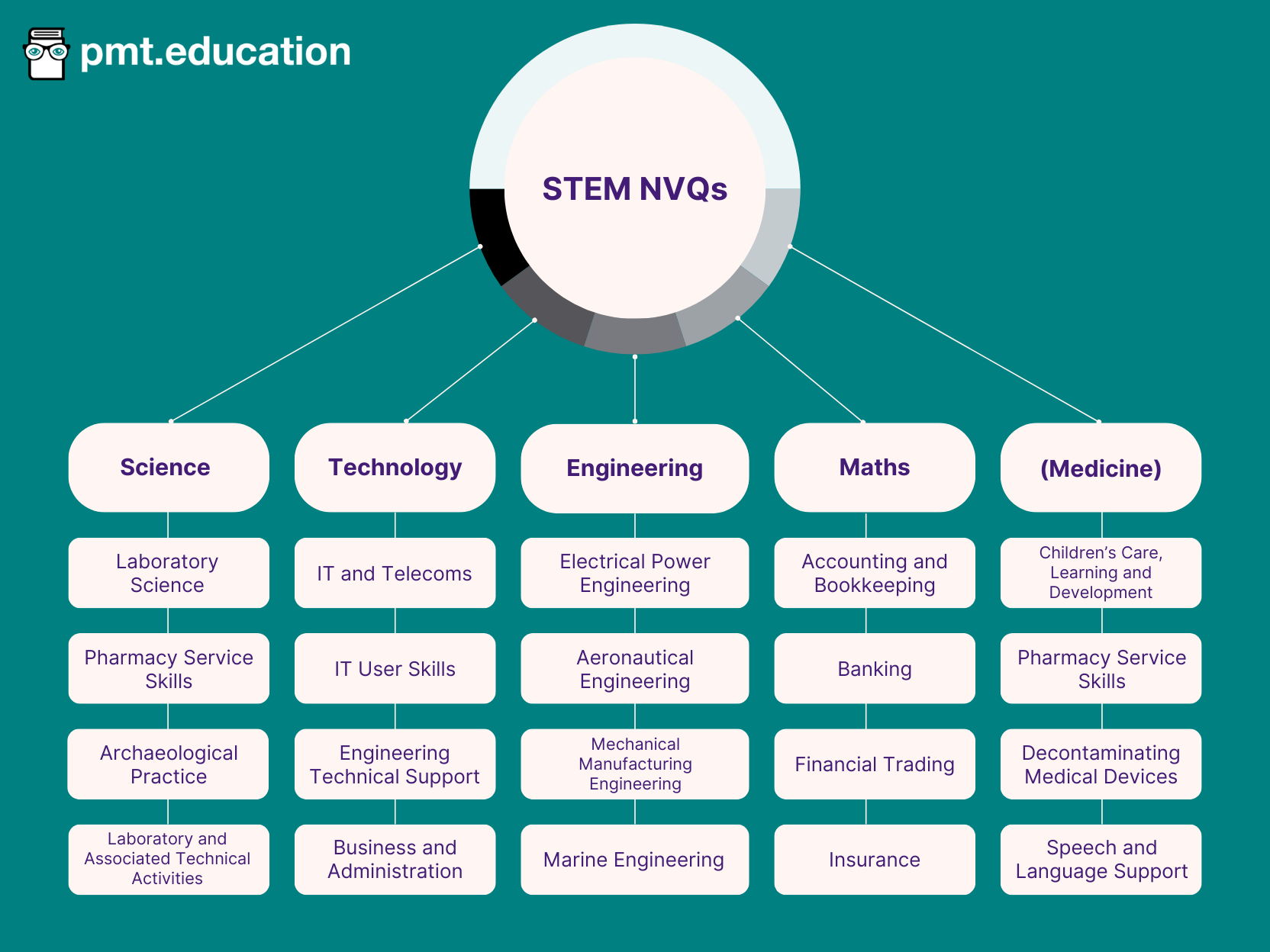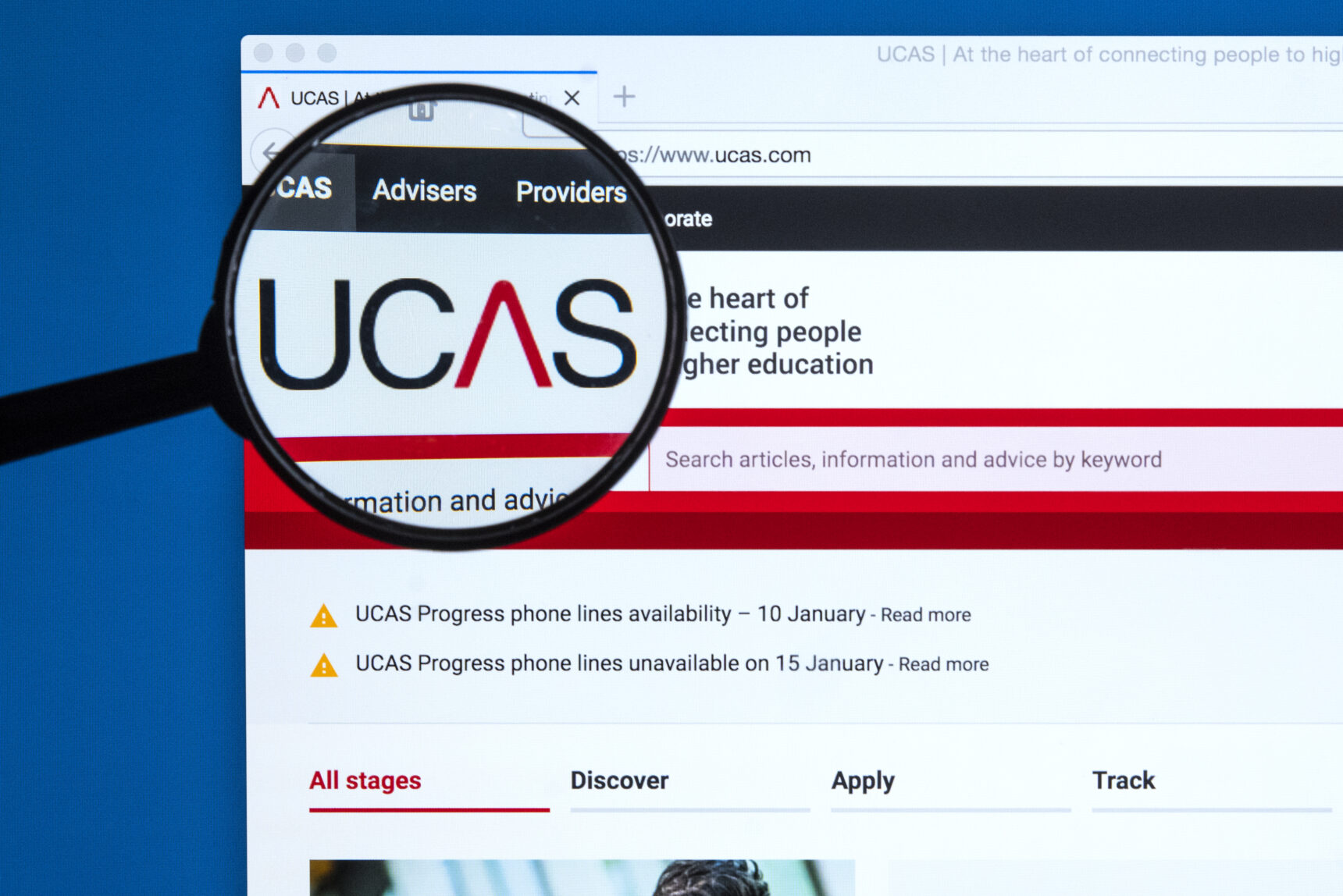Contents:
Qualification Level: Entry-level to 7
Age Group: 16+ years
Cost: Often employer-funded
Skills Developed: Job-specific skills, practical experience
Learning Environment: Workplace-based
What are NVQ courses?
NVQs (National Vocational Qualifications) are designed to prepare you for your chosen career by focusing on practical, work-related skills. These qualifications can be pursued while working, or at a school or college, making them ideal if you have a specific career in mind and want to prepare for success in that industry.
With NVQs available from entry-level to Level 7 (postgraduate level), there’s an option for everyone, regardless of where you are starting. In England, Wales, and Northern Ireland, these qualifications are called NVQs, while in Scotland, they are known as Scottish Vocational Qualifications (SVQs) and are very similar. For simplicity, we’ll stick to talking about NVQs in this guide, but Scottish students will find the information just as useful.
What NVQ courses are available in STEM?
A wide variety of STEM courses are available, including many that focus on specific job roles rather than traditional academic paths. To help you explore these options, we’ve put together a list of NVQ courses available in various STEM fields:

How do NVQs work?
How are NVQ courses structured?
The exact content and structure of NVQ courses can vary widely due to the diverse range of jobs they cover, each with different skill sets and tasks. Some may take several months to complete, while others may take a year or more. However, some general features apply to most NVQ courses:
- On-the-job training: Throughout your time studying for an NVQ, you will undergo on-the-job training, which will form the bulk of your learning experience. While you may spend some time learning theoretical concepts, these are always applied in practical settings to reinforce your understanding.
- Units and competencies: Many NVQs have both core and optional units. Core units cover fundamental skills and knowledge required across various roles within a sector, ensuring all candidates have a baseline of essential competencies. Optional units allow candidates to specialise in specific areas relevant to their job role or career aspirations.
- Flexible learning: NVQ courses are designed to be flexible, allowing candidates to work at their own pace while managing their work commitments. This flexibility helps accommodate different learning styles and schedules.
- Portfolio of evidence: As you progress, you will build up a portfolio of evidence demonstrating your professional skills and competencies. This can include work products, reports, observations, and feedback from supervisors or colleagues.
It’s important to know the exact structure of your course, so you should check the relevant course page for your course or contact the provider for full information.

How are NVQs assessed?
NVQs are competency–based, meaning you need to show that you can perform tasks to the required standard, rather than just passing exams. The focus is on how well you can apply your skills and knowledge in practical settings.
Throughout your training, you will build a portfolio of evidence from your professional experience. During the initial assessment, you will present work and evidence from this portfolio to showcase your learning and development. The assessor may then ask additional questions about your portfolio to facilitate a discussion and gain deeper insights into your achievements. Depending on the NVQ level and course, this could involve a structured interview or less formal verbal questioning.
Following this, an assessor may visit your workplace to observe you performing specific tasks. These observations are used to evaluate your practical skills and your ability to handle real work situations. Witness testimonies from supervisors, managers, or colleagues can also serve as evidence of your competency. These testimonies provide third-party validation of your skills and performance.
After the assessments, you will receive feedback on your performance. Each unit within the NVQ will result in one of two possible outcomes: a ‘Competent Award’ if the assessor determines you are ready for the workplace, or ‘Not Yet Competent’ if further development is needed. If required, you may need to provide additional evidence or make revisions to meet the NVQ standards fully. Alternatively, you may retake the assessment or the course if necessary.

NVQ courses undergo internal and external verification to ensure the quality and consistency of assessments. This process helps maintain standards and ensure that the qualification meets industry requirements.
What NVQ level should I take?
Choosing the right NVQ level is crucial for aligning your career goals and current skills with the appropriate qualification. Here’s a guide to help you determine which NVQ level is best suited for you:
Understand the NVQ levels
NVQ levels range from entry-level, which provides an introduction and assumes no prior knowledge, up to Level 7, equivalent to a master’s degree and intended for senior positions.
Assess your current experience and skills
There are no specific entry requirements to study an NVQ, meaning there is no age limit and you can start at any level. However, some higher levels may require prior experience or relevant qualifications and certifications related to the field of work. For instance, you might need to complete a Level 2 course before undertaking a Level 3 NVQ.
Consider your current experience and career goals when choosing a level. If you’re new to the industry, starting with Entry-Level, Level 1, or Level 2 NVQs may be appropriate. If you have some experience and wish to advance your career, a Level 3 NVQ could be a good fit. Levels 4 and above are generally more suitable later in your career, as these are designed for those already in supervisory or specialised roles, or those aiming for senior management positions.
Top tip
When choosing your NVQ level, think ahead to what employer you would like to work for or what industry you would like to work in.
Some employers and industries have specific NVQ level requirements that you must meet to apply for a role. You should make sure you have chosen the level that aligns with your industry and employer’s expectations.
How can I find an NVQ?
The first step to finding an NVQ is to clearly identify your career goals and the industry you wish to enter or advance in. This will help you determine the level and specialisation of the NVQ that best fits your professional aspirations.
NVQs are delivered by accredited training providers and educational institutions. To ensure you receive a recognised qualification, it’s important to choose a provider accredited by a relevant awarding body, such as City & Guilds, Edexcel (Pearson), or the Institute for Apprenticeships and Technical Education. You can find a list of accredited providers on the websites of these awarding bodies. Webpages such as UCAS courses and the UK Government’s National Careers Service also provide information on vocational qualifications and training providers.
Local colleges and training centres often offer NVQ programmes, so you may want to contact institutions in your area for information on available courses and enrolment details. Typically, you or your employer pay for an NVQ, so the application process usually only involves completing administrative forms without rigorous selection procedures.
If you’re already employed, consider exploring apprenticeships or work-based training opportunities that include NVQs. These options provide practical experience alongside a formal qualification. It is also common for NVQ courses to be arranged through your workplace using a training centre.
This block is currently empty. Please add some content.
NVQ vs RQF: What you need to know
When searching for NVQs, you may come across the term RQF – but what does it mean?
In 2015, the government updated the regulatory framework for vocational qualifications, introducing the Regulated Qualifications Framework (RQF). Under this new framework, NVQs can still exist if they meet specific criteria set by the government. NVQs were the primary vocational qualification from the 1980s to the 2010s, but RQF qualifications have become more prominent since the change.
Key takeaways:
- NVQs still exist: NVQs are still offered and recognised, even after the introduction of the RQF.
- Look for RQF in the qualification title: If you see “RQF” in the title of a course or qualification, it indicates that it follows the updated regulatory framework.
- Consistent Quality: Qualifications under the RQF are designed to be equivalent in quality and purpose to those under the old NVQ system, ensuring consistency even with the new framework.
Are NVQ courses well recognised?
NVQs play an important role in vocational education by focusing on practical skills and real-world competencies. In the UK, they are generally well-regarded for their hands-on approach and alignment with industry needs. However, the level of recognition can vary depending on your industry and the NVQ level you achieve. While NVQs are often considered equivalent to traditional academic routes such as A Levels and degrees, it’s important to understand that recognition can differ between higher education institutions and employers.
Do universities accept NVQs?
Yes, many universities do recognise NVQs, especially higher-level ones. Universities appreciate the practical experience and skills gained from NVQs, particularly for courses that align with your vocational background. For example, Level 3 NVQs are often considered for entry into undergraduate programmes, especially in vocational and technical fields.
Additionally, Level 3 NVQs are assigned UCAS tariff points which can help you meet university entry requirements. The UCAS points for a Level 3 NVQ can vary depending on the exact qualification, and the UCAS tariff point calculator can help you determine how many points a pass in your NVQ is worth.

These points are used to assess your qualifications within the UCAS tariff system. However, the acceptance of UCAS points from NVQs can differ between universities and specific courses. Some institutions might require additional qualifications or academic evidence alongside NVQs, so it’s wise to check the entry requirements of individual universities or courses to see how your NVQ qualifications will be considered.
NVQs are generally designed to lead directly into employment, focusing on practical skills and industry-specific competencies rather than academic qualifications.
Do employers recognise NVQs?
Generally, employers value NVQs for their practical, work-based approach. These qualifications demonstrate that individuals have the skills and competencies required for specific job roles, making them employable.
NVQs are particularly respected in sectors such as construction, health and social care, and business management. Employers in these fields often seek candidates with NVQs as they provide evidence of both theoretical knowledge and practical experience.
Nevertheless, the level of recognition can vary depending on the industry and the specific job role. While NVQs are widely respected, some professions may place a greater emphasis on academic qualifications or professional certifications. It’s beneficial to research the expectations of your chosen industry to ensure your qualifications align with your career goals.
NVQs vs other vocational qualifications
NVQs, T Levels, BTECs and Apprenticeships are all vocational qualifications that involve dividing time between a training provider and a workplace. They focus on teaching specific skills, trades, or jobs while supporting your education. But what sets them apart? Fortunately, we have an article to help you easily understand and navigate these various vocational alternatives to A Levels.
NVQ courses offer a valuable route for those looking to gain practical, work-based skills in a wide range of STEM fields. With flexible learning options, real-world experience, and pathways from entry-level to senior roles, NVQs are ideal for individuals who want to build a career without following the traditional academic route.
Next in this guide we will explore why studying STEM outside the classroom can help you improve subject knowledge, develop essential skills, and prepare for the future.
FAQs
What does NVQ stand for?
NVQ stands for National Vocational Qualification.
Do NVQs still exist?
Yes, NVQs still exist. Although the regulatory framework supporting NVQs was withdrawn and replaced by the Regulated Qualifications Framework (RQF) in 2015, NVQs remain available and relevant. See above for a more detailed explanation of navigating the differences between NVQs and RQFs.
What are NVQs equivalent to?
NVQs are equivalent to various educational levels, depending on the NVQ level and course type. For example, an NVQ Level 2 is typically equivalent to 5 GCSE passes, while a Level 3 NVQ is typically equivalent to 2 A Levels. For full details see the above section on NVQ levels.
NVQs vs BTECs: Which is right for me?
Choosing between NVQs and BTECs depends on your career goals and learning preferences. NVQs focus on practical, work-based skills and are ideal for those who prefer hands-on learning in a specific occupation. BTECs combine practical and theoretical learning, which can be suitable for those who want a mix of both.
How much do NVQ courses cost?
The cost of NVQ courses varies depending on the level and provider. Often, NVQ courses are funded or subsidised by employers looking to develop their workforce, but others might require payment. Additionally, there are options for free NVQ courses which you can find through certain educational providers or government schemes. Be sure to check out the government list of providers offering free courses for jobs.
Do online NVQ courses exist?
Yes, online NVQ courses do exist. Lower-level NVQ courses involve lots of hands-on workplace assignments, but higher NVQs can sometimes offer more flexibility for online learning and assessment. There are various NVQ courses advertised online. When selecting from these, ensure they are reputable providers by checking if the awarding body is regulated using the government website.


Comments